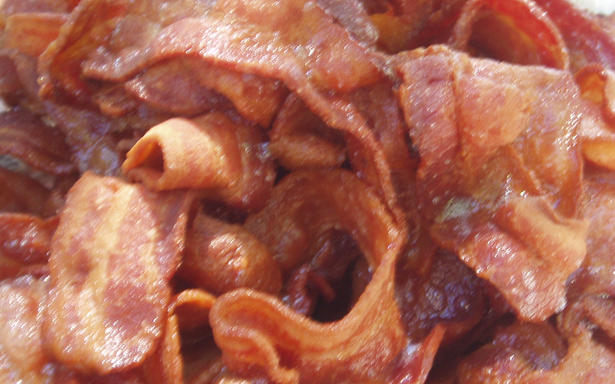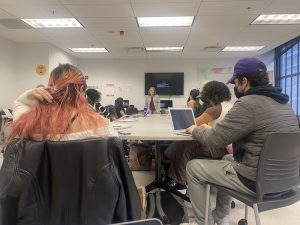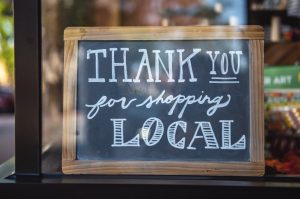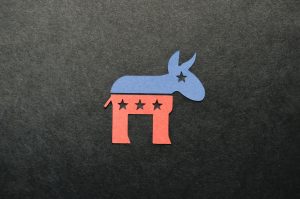Farmland Launches Exclusive Online Club for Bacon Lovers according to their news release, it is ” … a place where bacon lovers can connect, talk, taste, write, post, inspire, design, win, view, vote, like, upload, download, create, influence, and share their passion.” But is it a political decision to sign up for the Online Club for Bacon Lovers?
Bacon is big these days, from bacon-maple doughnuts, to bacon band-aids, and bacon cosmetics. Millennials love bacon.
Interest in bacon in Chicago, is second only to interest in bacon in Seattle.
Is that bite of bacon a political act, taken without reflection by the modern gourmand?
The story of Farmland bacon and its social networking efforts illustrates a problem facing our democracy, and the public sector. It’s a problem that disrupts our political processes in the United States in the early 21st century.
Here’s how: Farmland was once known as the Consumers Cooperative Association. It became one of America’s largest cooperatives, Farmland Industries under the leadership of Howard A. Cowden of Minnesota.
An agricultural cooperative or farmers’ co-op is an association of producers who pool their resources of various kinds. Cooperatives are “democratic associations of member-producers as well as businesses” which reflects the inherent tension in a democratic, capitalist society. Thus members of the agricultural cooperative focused on producing quality food, also created the first cooperatively owned oil refinery in the United States because they could pool resources to buy the refinery and owning it cooperatively would save them money.
Farmland’s Union Oil which was started in 1929, as a way for farmers to fight the ” … market power of such giants as Standard Oil and Sunoco.” Yet this meant the co-op was on a path of agricultural industrialization, and it would become part of big business where corporate conglomeration is common.

Cooperatives are meant to be controlled by the members who are the prime beneficiaries. According to Thomas Gray, writing in Rural Cooperatives* the complexity of how big business conglomerates operate confuses the issues of who the beneficiaries of the co-op are, and who its critical decision makers are. Is the interest of the members always aligned with reaping the biggest immediate gain for shareholders or a conglomerate?
Farmlands was a joint venture partner with a several other companies, including: Archer Daniels Midland, Simplot, ConAgra, Land O’Lakesand even Kansas State University in agricultural research, according to its Wikipedia entry. However, as it grew in size and complexity, it got into financial difficulty and was too highly leveraged to continue.
The cooperative filed for Chapter 11 in May 2002, but the case has been handled from the early stages as a virtual Chapter 7, or asset liquidation bankruptcy and thousands of farmers were at risk of losing the $700 million in equity or investments they had in the co-op. Settlements were worked out in the courts over a number of years.
In 2014, Shuanghui, a Chinese corporation, bought Smithfield Foods Inc., the world’s largest hog farmer and pork processor, and owner of Farmlands foods, for $4.7 billion deal in the largest Chinese takeover of a U.S. company. Chinese business people are making the bacon, though indirectly through a farmer in the USA.
Thus a seemingly trivial act of signing up for the Online Club for Bacon Lovers, could be viewed as a political, or an apolitical act, depending on what you think about the connections between democracy and big business interests. That’s something to chew on.
* Gray, T. W. (2005). Farmland faced classic co-op dilemma. Rural Cooperatives, 72(2), 22.













Be First to Comment